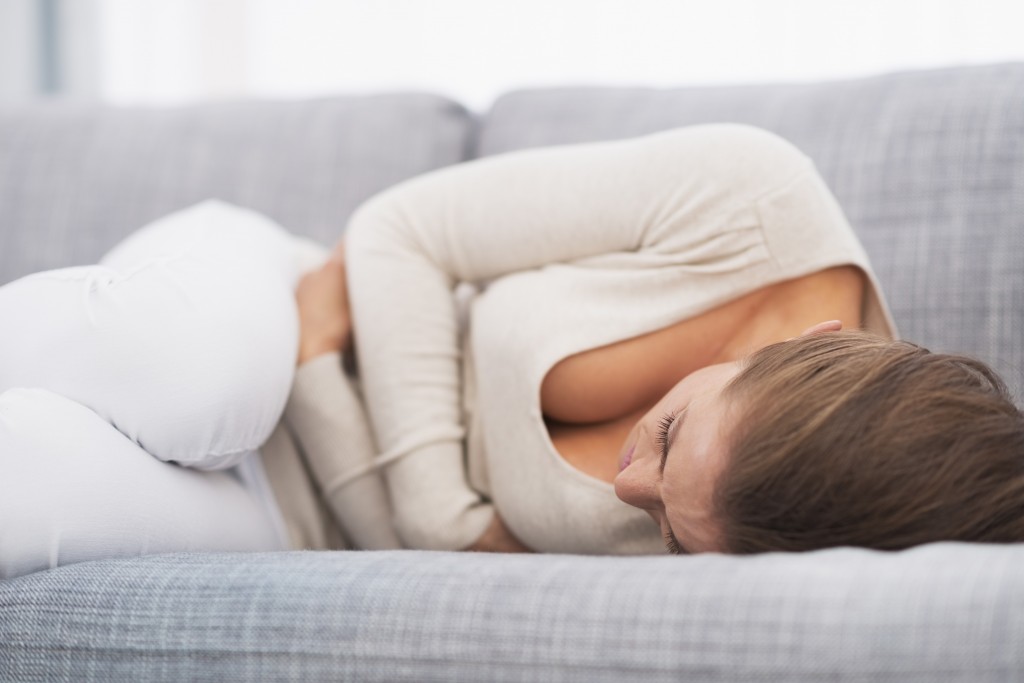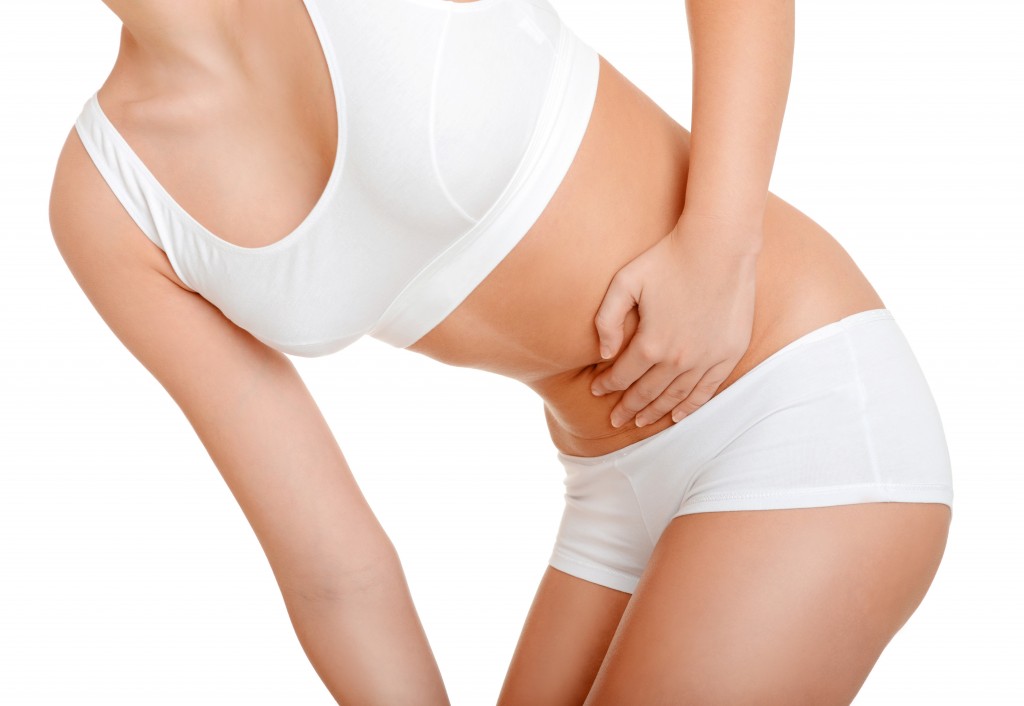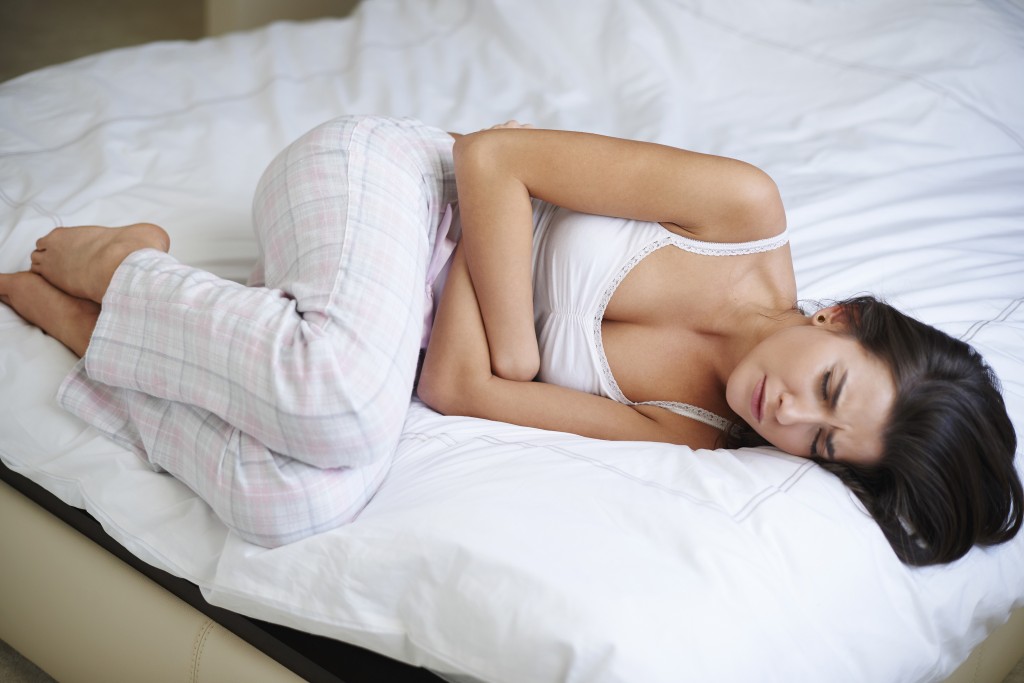Is it normal to cramp after ovulation?
Cramping after ovulation can be a prime sign of pregnancy. And while this may sound like good news for some, you should know that post ovulation cramps aren’t always a good thing. Many times, cramping after ovulation may indicate a more serious condition such as endometriosis or appendicitis.
The question is, how do you know if your cramps are caused by ovulation, pregnancy or something else? We’ve put together a comprehensive guide to help you distinguish between the types of pain you may experience, and what to do in each case.
Pain After Ovulation – Causes
Have you ever wondered what’s causing the stomach cramps that often make you feel miserable?
When you ovulate, a myriad of changes takes place in your body. The follicle that’s been housing the egg over the course of the previous month bursts to release it. Progesterone starts dominating the moment the egg is released. Blood vessels are ruptured, and your basal body temperature increases. Suddenly, your jeans feel a little tighter than usually, and your tummy is bloated, like you’ve just eaten a huge bowl of your favorite treats.
These are all common symptoms of ovulation. When the pain persists after ovulation occurred, there are a few potential causes – and we’ve listed the most common ones below:
1. Overstretching of the Ovary
Each month, between 15 and 20 eggs mature inside both your ovaries. However, only one of them reaches complete maturity, and this can happen either in the right or left ovary. They don’t take turns to release the egg, as the process is quite random – one month it can be your right ovary releasing the egg, the next one it can be the left ovary. The egg is housed in a fluid-filled sac or pocket known as follicle. It is located on the ovaries.
Right before the egg is released, this fluid-filled sac stretches, causing pressure and mild cramping. The cramping can last anywhere from a few minutes up to 24 hours, or sometimes longer. Some women naturally don’t experience any discomfort, while others do, but to different extents. The location of the pain depends on the ovary that releases the egg (e.g. in the left side of the abdomen if the left ovary releases the egg).
2. Ruptured Blood Vessels
In order for the egg to be released, a follicle must burst. When this happens, blood vessels rupture, which causes additional discomfort. The muscles of the fallopian tubes undergo contraction when you ovulate, putting additional pressure in your abdominal area. The discomfort can last for a couple of hours, but no longer than 12-16.
3. Too Much Cervical Mucus
Remember what we’ve said about cervical mucus being beneficial to your reproductive system? Well, that’s true. Not only does it keep infections at bay, but it also helps flush out dead skin cells and bacteria, maintaining your vagina clean and healthy. Moreover, the increased amount of discharge facilitates penetration, and allows sperm cells to live longer. But if there’s really too much cervical mucus, your fallopian tubes may become congested, which will further result in period like cramps.
There’s not much you can do about this since the congestion occurs inside the vagina. You should make sure to keep your genitals clean and fresh by washing with plain tap water, but never use soaps, deodorants or other such hygiene products, as they may cause changes in the vagina’s acidic pH environment.
4. Post-Ovulation Constipation
Constipation can cause abdominal discomfort on its own, but when it happens during ovulation, the result is mild to severe cramping. This can be easily avoided if you make sure to stay well-hydrated before ovulation occurs. Drink at least eight glasses of water, and consider eating vegetables and fruits with a high amount of water, like cucumbers, melons, apples and prunes. If your diet lacks fiber, you may want to include fiber-rich foods like nuts in your diet as well.
Still Have Cramps a Few Days After Ovulation?
Many women report ovulation pain as long as 2 or 3 days after ovulation. Is this normal? If the symptoms haven’t cleared up yet, then you may still experience pain 2 days after ovulation. However, if you still have abdominal cramping 4 days after ovulation, then you may want to consider talking to a specialist about your symptoms, as something more serious may be going on.
First of all, you should try to determine if you really ovulated at the time you thought you did. Many women often misremember this date. Try remembering the date your last period started, and calculate the date when your next period is scheduled to arrive based on the average length of your menstrual cycle. For example, if your menstrual cycle is 28 days long, calculate 28 days from the date your last period arrived to see when your next one will come. Then, count 12-14 days back, and you’ll get the approximate time interval when you’ll ovulate.
If the dates don’t match, then you’ve probably ovulated later than you initially predicted, which explains why you’re now experiencing the stomach cramps and discomfort. Make sure to write down the date in a calendar so you won’t accidentally misremember it next time.
If the dates coincide, then you should go to a medical clinic to have the underlying issue further investigated.
Cramping a Week After Ovulation?
If you ovulated one week ago, but still experience stomach cramping, this may be a sign of the onset of your next period, regardless of the duration of your menstrual cycle. Stomach cramps are frequently associated with pre-menstrual symptoms (PMS), so you can expect your belly to be a little painful right before your period is scheduled to arrive.
Other PMS symptoms include bloating, nausea, breast tenderness and diarrhea or constipation. Painkillers like ibuprofen are typically the best way to alleviate the pain and discomfort, but you may want to avoid taking them every time you experience even the least bit of pain, otherwise your body may start getting used to them, and so they will no longer take effect.
Other Possible Causes of Ovulation Cramps
If you have cramps long after you ovulated (e.g. 5 days or one week after ovulation), there are several possible causes, which may range from harmless ones such as uterine fibroids, to more serious ones like cancer of the reproductive system (endometrium, vagina, uterus or cervix). We’ve analyzed a few of the conditions that cause period like cramps after ovulation:
- Pelvic inflammatory disease: PID is a condition that results from not treating sexually transmitted diseases such as gonorrhea, trichomoniasis and Chlamydia. Pelvic inflammatory disease can cause permanent damage to the ovaries, uterus and fallopian tubes, and is the number one most treatable (and preventable) cause of infertility.
- Uterine fibroids: Fibroids grow on or in the wall of your uterus. Although they are often referred to as tumors, fibroids are not cancerous. They cause pressure in your belly, lower back pain, heavy periods, painful sex, and difficulty getting pregnant. Uterine fibroids are most common in women in their 30s or 40s.
- Ovarian cysts: Every month, between 15 and 20 eggs mature in fluid-filled sacs that form on your ovaries (called follicles). Of them only one egg reaches the epitome of maturity. This can happen in either the left or right ovary. To release the egg, the follicle needs to burst. Sometimes, the follicle won’t burst, or it will burst but reclose and swell with the fluid. This causes ovarian cysts, and although they are harmless and usually go away on their own, they can cause cramps and bloating, as well as swelling. If the cyst bursts, it can cause sudden, severe pain that may get you directly to the emergency room.
- Appendicitis: Symptoms of appendicitis are similar to ovulation, ranging from abdominal pain on the right side of your abdomen to pain in the vagina and fever. If you experience any such symptoms, make sure to inform your doctor about it, as appendicitis can become a life-threatening issue if not addressed on time. If the appendix bursts, the infection will be released in your body, causing complications.
- Kidney Stones: Your body naturally eliminates salt and minerals through urine, but when the amount is more than your kidneys can filter, the result is stones forming inside. These ‘stones’ are essentially globes of salt and minerals that can be as small as a grain of sand, or as large as your thumbnail. Usually, kidney stones cause pelvic pain, pink, blood-stained discharge and bloody urine. Should you experience any of these symptoms and you’re not on your period, make sure to check with your ob-gyn to have the issue further investigated.
- Irritable bowel syndrome: Although doctors don’t know what causes it, irritable bowel syndrome (or IBS) can dramatically interfere with your day-to-day activities due to the belly pain, bloating and diarrhea/constipation is causes. There is no treatment for irritable bowel syndrome, but your doctor may recommend you certain medications and drugs that will help ease the symptoms and make them less bothersome.




